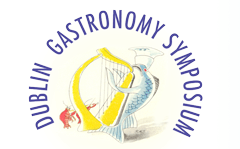Start Date
29-5-2024 10:15 AM
End Date
29-5-2024 10:30 AM
Description
The humoral theory, an ancient medical doctrine originating in Greece and championed by eminent physicians like Hippocrates and Galen, served as the cornerstone of medical understanding for millennia, preceding the emergence of modern medicine. This enduring theory postulated that an individual's health was intricately linked to the delicate balance of four bodily fluids or humours. Over the course of nearly two thousand years, it not only shaped medical practices but also profoundly influenced the choices people made regarding their diets and overall well-being. Its reach extended far beyond the realm of medicine, leaving an indelible mark on our culture and history. This influence manifested itself in various forms, permeating our language, art, literature, and even our perceptions of human nature. Despite its scientific obsolescence, the humoral theory's cultural legacy endures. While explicit references to it may be scarce in contemporary discussions on diet and cuisine, subtle traces of its influence persist in certain dietary customs, culinary traditions, and nutritional beliefs. This research paper embarks on a comprehensive exploration of these remnants of the humoral theory in our modern lives. Its primary objective is to ascertain whether, after nearly two millennia, the theorY's impact remains substantial in the 21st century. The author will meticulously scrutinize the extent to which people today are still influenced by humoral dietetics and the enduring echoes of this ancient medical philosophy in our contemporary society. Through this examination, I aim to gain deeper insights into the enduring legacy of the humoral theory in our modern world.
Creative Commons License

This work is licensed under a Creative Commons Attribution-NonCommercial-Share Alike 4.0 International License.
DOI
https://doi.org/10.21427/rp6w-b010
Included in
Cultural History Commons, European History Commons, Food Studies Commons, History of Science, Technology, and Medicine Commons, Other Anthropology Commons, Other Arts and Humanities Commons, Other History Commons, Other Languages, Societies, and Cultures Commons, Social and Cultural Anthropology Commons, Social History Commons, Theory, Knowledge and Science Commons
The Legacy of the Humoral Theory in Modern Culinary Tradition
The humoral theory, an ancient medical doctrine originating in Greece and championed by eminent physicians like Hippocrates and Galen, served as the cornerstone of medical understanding for millennia, preceding the emergence of modern medicine. This enduring theory postulated that an individual's health was intricately linked to the delicate balance of four bodily fluids or humours. Over the course of nearly two thousand years, it not only shaped medical practices but also profoundly influenced the choices people made regarding their diets and overall well-being. Its reach extended far beyond the realm of medicine, leaving an indelible mark on our culture and history. This influence manifested itself in various forms, permeating our language, art, literature, and even our perceptions of human nature. Despite its scientific obsolescence, the humoral theory's cultural legacy endures. While explicit references to it may be scarce in contemporary discussions on diet and cuisine, subtle traces of its influence persist in certain dietary customs, culinary traditions, and nutritional beliefs. This research paper embarks on a comprehensive exploration of these remnants of the humoral theory in our modern lives. Its primary objective is to ascertain whether, after nearly two millennia, the theorY's impact remains substantial in the 21st century. The author will meticulously scrutinize the extent to which people today are still influenced by humoral dietetics and the enduring echoes of this ancient medical philosophy in our contemporary society. Through this examination, I aim to gain deeper insights into the enduring legacy of the humoral theory in our modern world.
